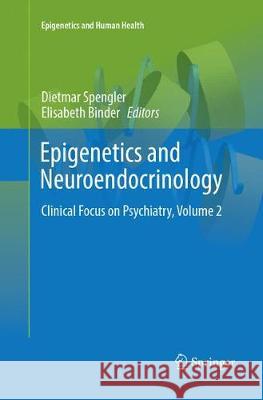Epigenetics and Neuroendocrinology: Clinical Focus on Psychiatry, Volume 2 » książka
topmenu
Epigenetics and Neuroendocrinology: Clinical Focus on Psychiatry, Volume 2
ISBN-13: 9783319806815 / Angielski / Miękka / 2018 / 261 str.
Kategorie BISAC:
Wydawca:
Springer
Seria wydawnicza:
Język:
Angielski
ISBN-13:
9783319806815
Rok wydania:
2018
Wydanie:
Softcover Repri
Ilość stron:
261
Oprawa:
Miękka
Wolumenów:
01











